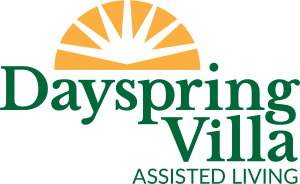Staffing in Assisted Living Communities
At the core of every well-functioning assisted living community is staffing a team of dedicated caregivers. The right staffing is not just about fulfilling roles and completing tasks; it’s about ensuring each resident is provided with the care they need and the compassion and attention they deserve. It’s the human touch that turns a place of residence into a true home, where every resident is seen, heard, and cared for.
 This important role of providing care in assisted living communities, is greatly impacted by the right staffing as well as finding the delicate balance of staffing ratios, according to a recent study by the National Library of Medicine (NIH). The article emphasizes the significance of appropriate staffing ratios, underscoring how it directly impacts the quality of care provided. Think of it as the art of tailoring care plans to fit each resident uniquely. It ensures that the time and attention given to individuals are sufficient, fostering a personalized approach that recognizes the diverse needs of our residents.
This important role of providing care in assisted living communities, is greatly impacted by the right staffing as well as finding the delicate balance of staffing ratios, according to a recent study by the National Library of Medicine (NIH). The article emphasizes the significance of appropriate staffing ratios, underscoring how it directly impacts the quality of care provided. Think of it as the art of tailoring care plans to fit each resident uniquely. It ensures that the time and attention given to individuals are sufficient, fostering a personalized approach that recognizes the diverse needs of our residents.
In addition, it is important to learn what types of training staff receive and how frequently they receive training. According to the US Department of Health & Human Services, well trained and qualified staff can enhance the quality of care and impact the overall wellbeing of residents. Time and time again, relevant research has shown that assisted living communities with full-time clinical staff and in-house direct care have a direct impact on resident outcomes.
 Finding the perfect staffing is a top priority for assisted living homes. Regulatory bodies and industry organizations often provide guidelines to ensure a minimum standard of care. However, achieving an ideal staff and ratio requires a balance between ensuring residents’ well-being and sustainability. Picture a community where every resident is embraced by the right staffing, driven by compassion – this is the heartbeat that sustains such a community.
Finding the perfect staffing is a top priority for assisted living homes. Regulatory bodies and industry organizations often provide guidelines to ensure a minimum standard of care. However, achieving an ideal staff and ratio requires a balance between ensuring residents’ well-being and sustainability. Picture a community where every resident is embraced by the right staffing, driven by compassion – this is the heartbeat that sustains such a community.
Top 5 Benefits of Optimal Staffing in Assisted Living Communities
Personalized Care with Dignity
Proper staffing enables caregivers to dedicate time and attention to each resident, understanding their unique needs and preferences. This personalized approach goes beyond routine tasks, fostering a sense of individuality and enhancing the overall dignity and quality of life for every resident.
Timely Assistance
Seniors often require assistance with daily activities at different times of the day. With an optimal staffing, caregivers can promptly attend to residents’ needs, ensuring they receive timely help with medication administration, mobility support, and mealtime assistance.
Fostering Social Engagement and Preventing Isolation
Inadequate staffing can contribute to feelings of isolation among residents. On the contrary, the right staffing facilitates meaningful social interactions, creating a sense of community and friendship that is vital for emotional well-being.
Ensuring Safety and Peace of Mind
Adequate staffing is not just about meeting basic needs; it’s about ensuring safety and security. Whether it’s assistance with daily activities or prompt responses during emergencies, the right staffing is essential for maintaining a reassuring environment.
Transparent Communication and Collaboration
Transparent communication and collaboration between caregivers, residents, and their families is important for the wellbeing of residents. Appropriate staffing is key in creating a culture where everyone is involved, informed, and part of a supportive network.
 The right staffing is crucial in assisted living communities and a fundamental aspect of the quality of care provided. The impact of staffing on residents’ well-being, safety, and overall satisfaction cannot be underestimated. Striking the right balance between personalized care and sustainability is crucial to create an environment where older adults can thrive during their golden years. Families researching assisted living options should prioritize communities that maintain optimal staffing, ensuring their loved ones receive the attention, care, and dignity they deserve.
The right staffing is crucial in assisted living communities and a fundamental aspect of the quality of care provided. The impact of staffing on residents’ well-being, safety, and overall satisfaction cannot be underestimated. Striking the right balance between personalized care and sustainability is crucial to create an environment where older adults can thrive during their golden years. Families researching assisted living options should prioritize communities that maintain optimal staffing, ensuring their loved ones receive the attention, care, and dignity they deserve.



